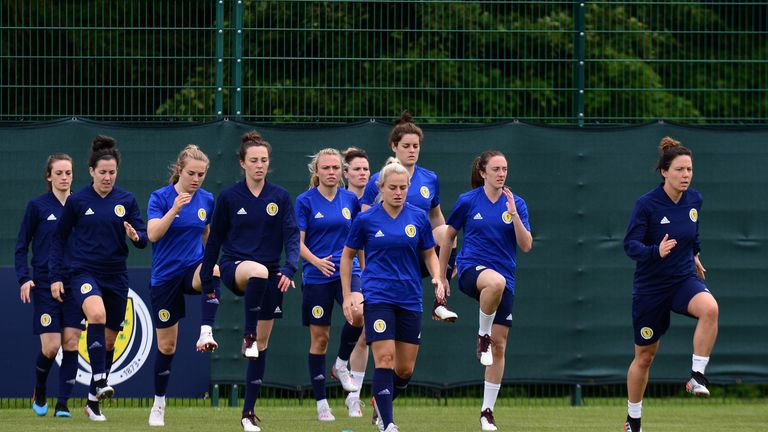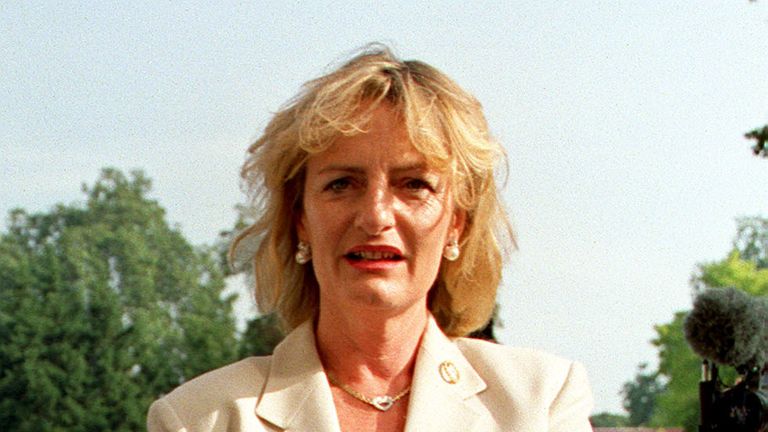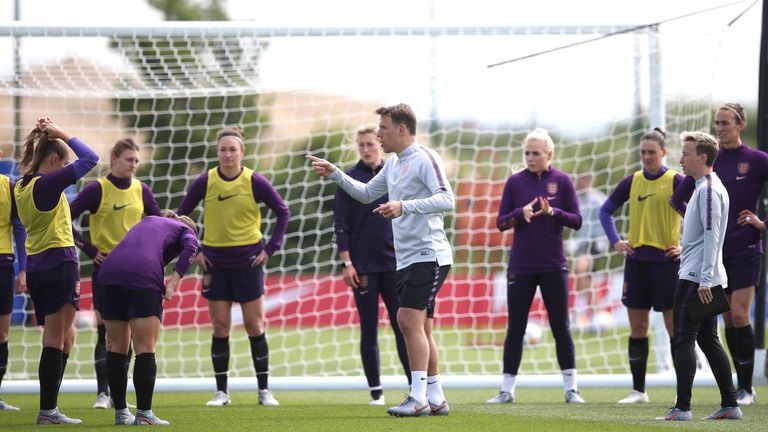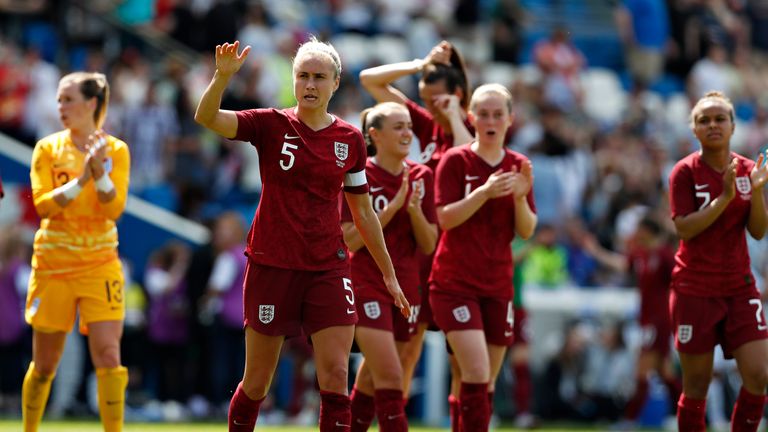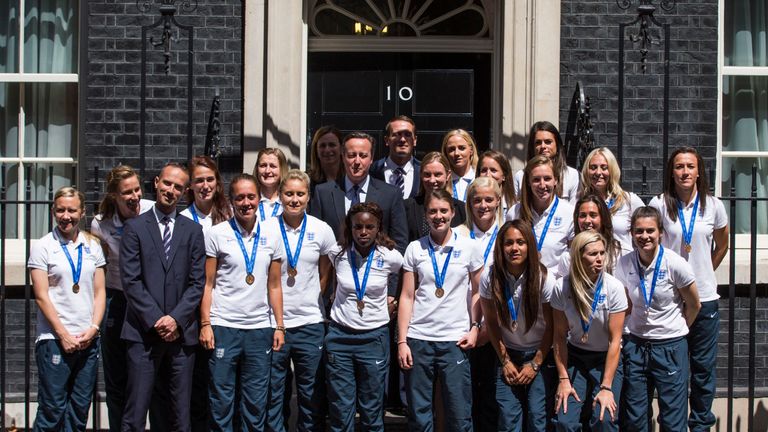Women’s World Cup 2019: England play Scotland in their first match
England open their Women’s World Cup campaign against Scotland today in a tournament which is expected to be the biggest in history, with new audiences, larger crowds and more sponsorship money than ever.
The team, managed by Phil Neville, are among the favourites to lift the trophy inside the Parc Olympique Lyonnais on 7 July. But first they have to negotiate their way out of a tricky group also containing Japan and Argentina.
Their opening fixture is at the Allianz Riviera stadium in Nice, which played host to England’s men in their final game of Euro 2016 when they were humiliated by Iceland.
This World Cup is expected to be the best attended in history and the curtain-raiser between hosts France and South Korea at the 47,929-seater Parc des Princes on Friday evening was a sell-out.
For the first time, Adidas is offering equal prize money to the players it sponsors in the World Cup winning team as the men received for triumphing Russia 2018. Incredibly, it will also be the first World Cup where the women are wearing kits specifically made for them.
But just how far has women’s football come? Britain’s first female football agent Rachel Anderson was banned from attending a Professional Footballers’ Association dinner in 1998, simply because she was a woman and says it is unrecognisable from 30 years ago. But, she says, there is still a long way to travel.
“We have to think about it – women were banned from playing football until 1971,” she said. “Not 1871, 1771, 1971. We’ve got a long way to go before we have some sort of even keel. It’ll come. It’ll just take a while.”
The history of women’s football was finally recognised this week at the national football museum with the unveiling of a statue of Lily Parr, the first female footballer. She pulled in crowds of 53,000 with the Dick Kerr Ladies team until, in 1921, the FA banned women’s football, a decision which wasn’t overturned until 1971.
“It’s the biggest growing sport in the country,” Ms Anderson added, “Nobody says or they shouldn’t say that women’s football is the same as men – it’s different.
“Same as the supporters are different. You go to a women’s game and you’re not worrying about people throwing all sorts and battling with the police, we’re more subtle than that. We do it quietly.”
At Equal Focus Football, an initiative set up by Charlton Athletic midfielder Amber-Keegan Stobbs, they are using the World Cup to inspire the young girls who partake in their football camps.
“A lot of them idolise the players,” said Ms Stobbs. “We’ve got one mum that said Leah Williamson came and gave her her boots and stuff like that.
“We’ve had some players come down to camps, to inspire the girls and show them the role models that they can look up to and where they can be one day. But the girls are really excited for the summer and the World Cup and I can really tell they are really inspired.”
This is the first time Scotland, who are ranked 20th in the world, have been in a World Cup since 1998, when their men didn’t win a single match.
England finished third at the World Cup in Canada in 2015 and will be hoping they can do better here, encouraged by their victory in the highly competitive She Believes Cup earlier this year.
Big sports brands like Nike and Lucozade have released adverts specially to promote the tournament, with companies keen to ensure they are on the right side of history.
Sport marketing expert Tim Crow said: “You could say that it’s become quite fashionable to be a woman and particularly a sportswoman, so that timeliness is there. A lot of media companies now are competing to out-behave each other in this area, for various reasons. So when you add all of that together it’s the perfect scenario for brands.”
But England striker Toni Duggan, who plays her club football for Barcelona, said true parity will only exist when people feel liberated to criticise women’s football. Mr Crow agrees with this assessment.
“At the moment it’s all quite nice, and football although the women’s game does have different values,” he said.
“I think once people start to feel empowered to criticise it and behave like normal football fans – that to me is the next level of progression.”
Source: Read Full Article
